Military Adult TCKs & Mental Health
We prioritize research so that...
- Caregivers better understand the needs of the TCKs they care for and therefore build effective programs and support systems.
- Adult TCKs feel seen in their stories, knowing they are not alone and there is hope for thriving.
Military Adult TCKs & Mental Health:
First Look at the 2024 Research
Click on these buttons to scroll down the page to specific sections.
- 94% of military TCKs saw a "broad worldview" as one of their strengths
- 93% of military TCKs said living internationally as a child was a good experience overall
- 78% of military TCKs experienced symptoms of at least one mental health concern
- 40% of military TCKs had been diagnosed with depression
- 17% of military TCKs had been diagnosed with PTSD
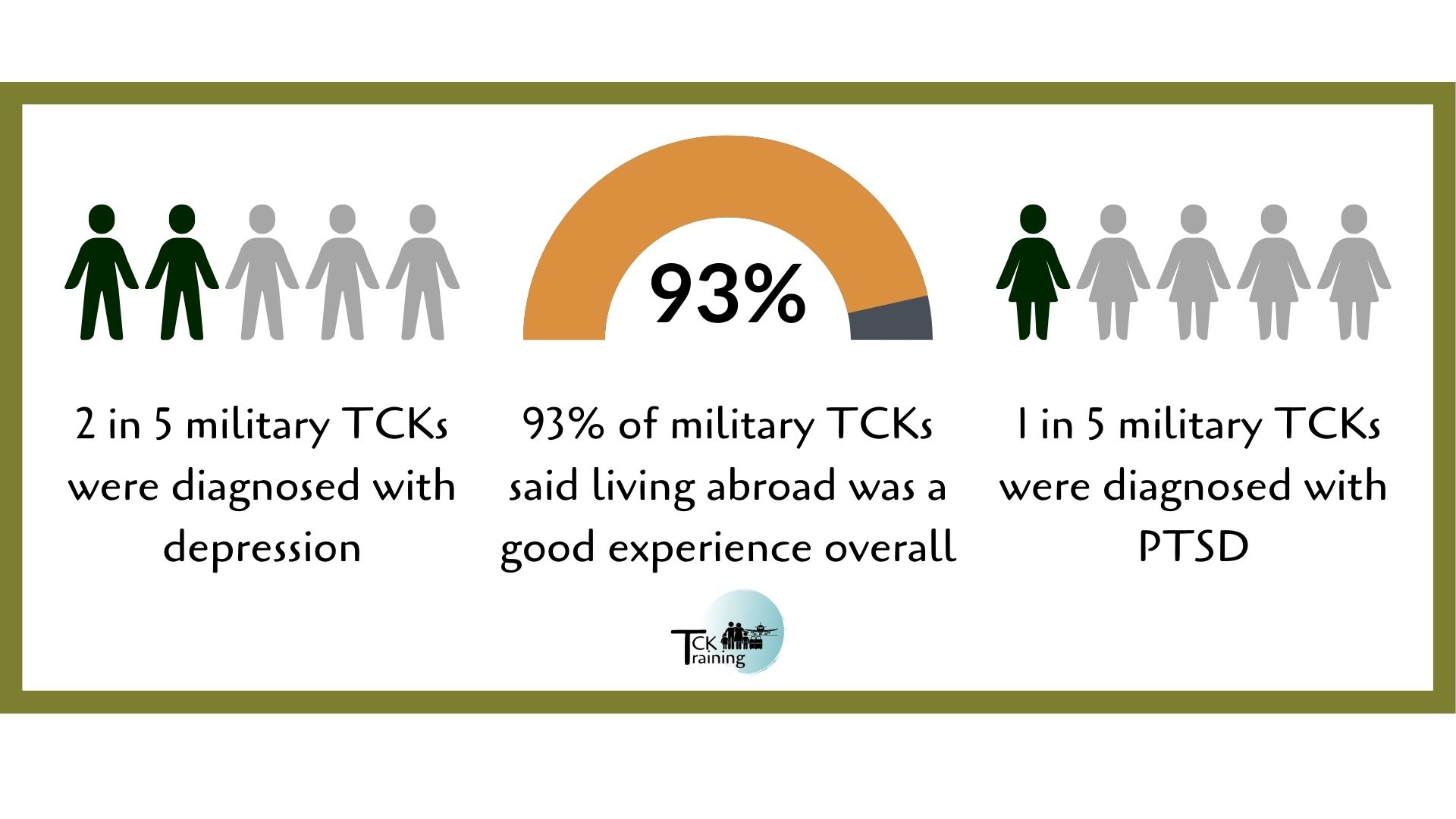
Views of Childhood
- 93% of military TCKs said living internationally as a child was a good experience overall.
- 92% of military TCKs could see both good and hard parts in their story.
- 74% of military TCKs said this was “the best way to grow up”.
- 70% of military TCKs felt proud of their parents’ work.
- 63% of military TCKs said living abroad made their family closer.
- 60% of military TCKs said their experience was wonderful, and they had “no regrets”.
20% of military TCKs said their experience was “mostly painful” which was similar to what we saw in other sectors. It is important to note that the majority of these TCKs also said they could see both good and hard parts in their story, and that living overseas was a good experience overall.
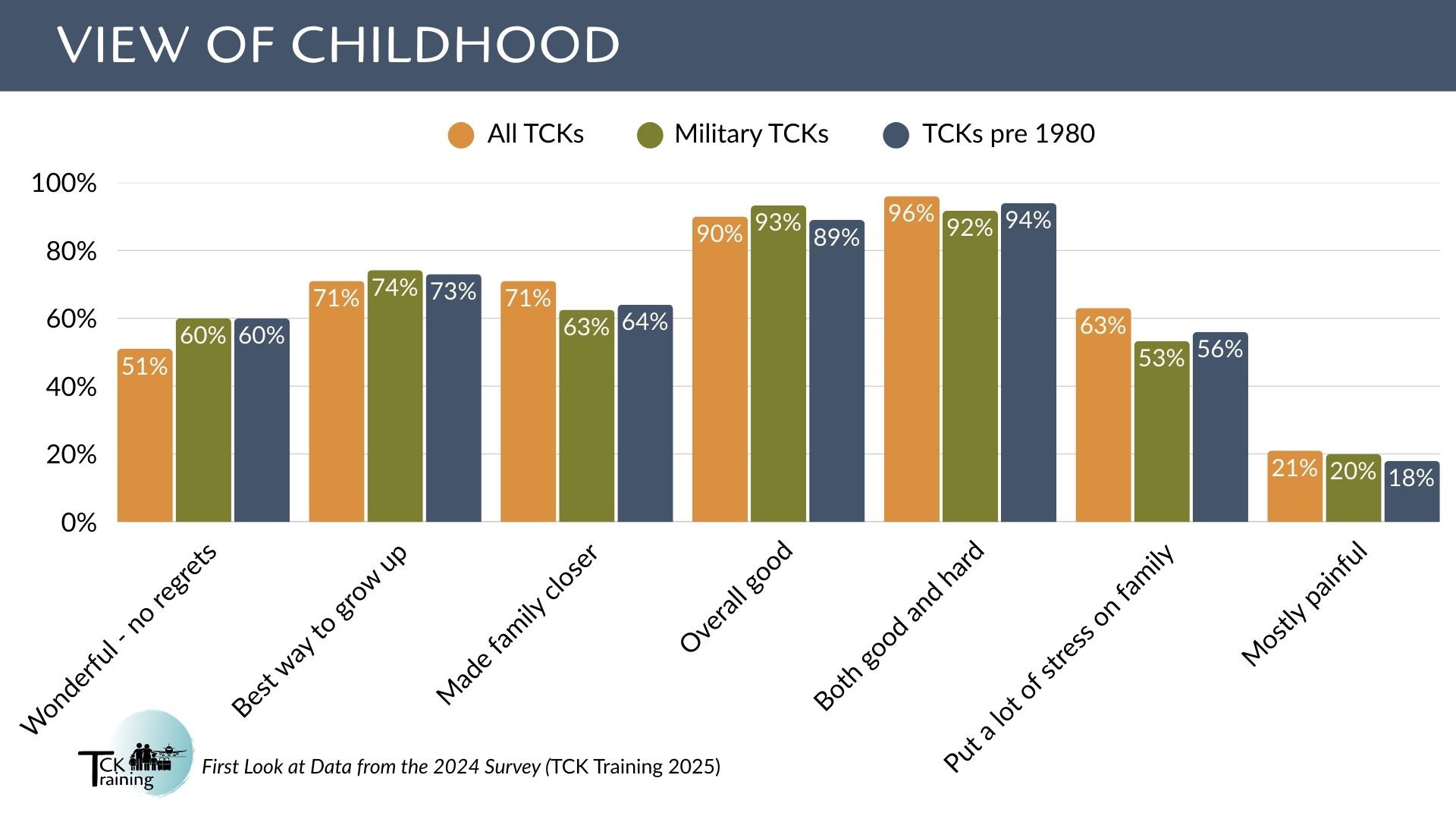
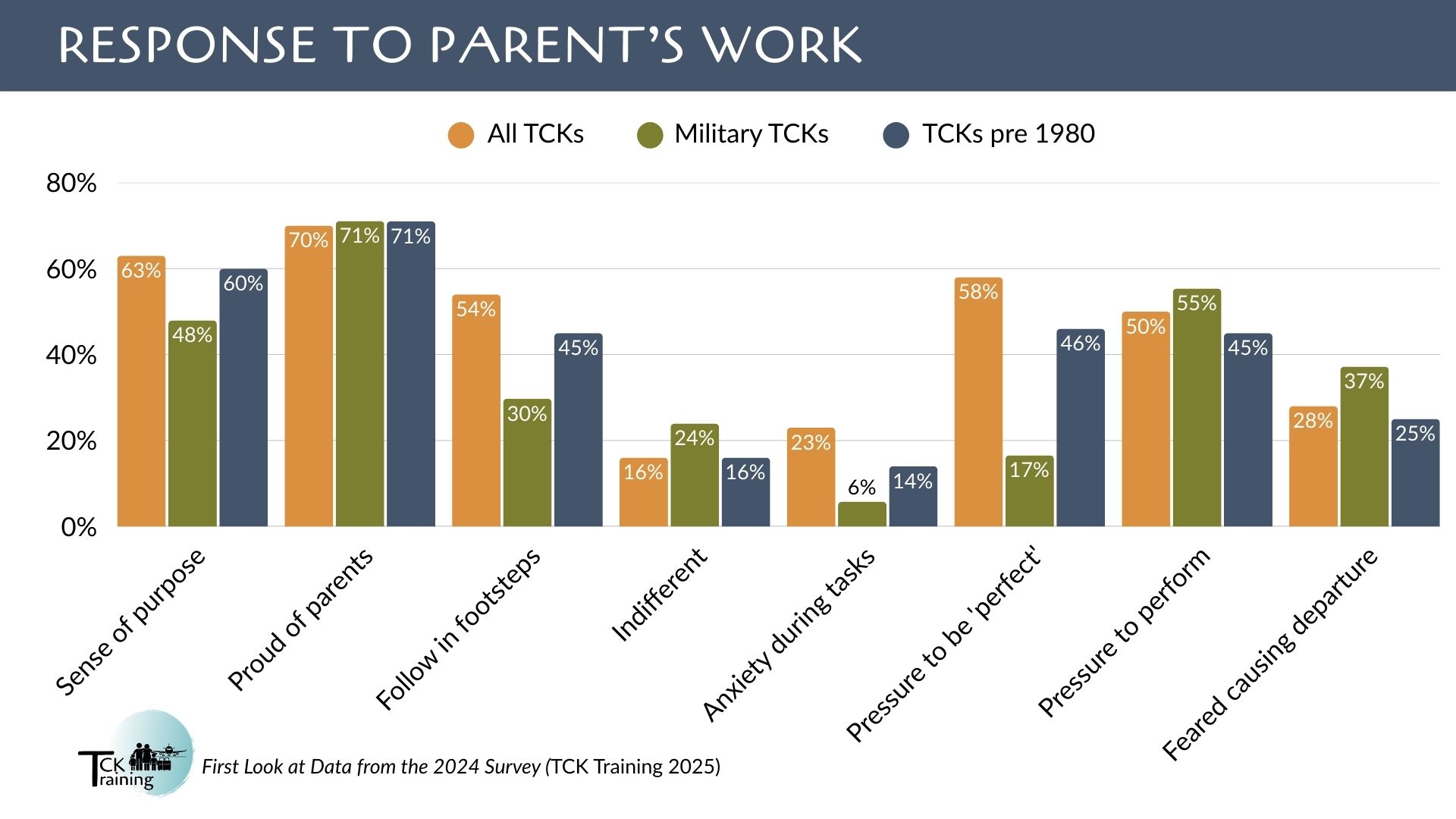
Strengths and Struggles in Adulthood
Strengths
- 90% of military TCKs identified Adaptability as a strength
- 87% of military TCKs identified Resilience as a strength
- 75% of military TCKs identified Fast Learner as a strength
- 67% of military TCKs identified Hope in Adversity as a strength
- 58% of military TCKs identified Goals & Aspirations as a strength
94% of military TCKs saw a Broad Worldview as one of their strengths (on par with other TCKs), but only 76% also saw being a Bridge Between Cultures as a strength (less common than among other TCKs). Also, only 40% of military TCKs saw Language Learning as a strength. This makes sense, given that military TCKs are more likely to live on bases or in other international communities than to live immersed in local communities.
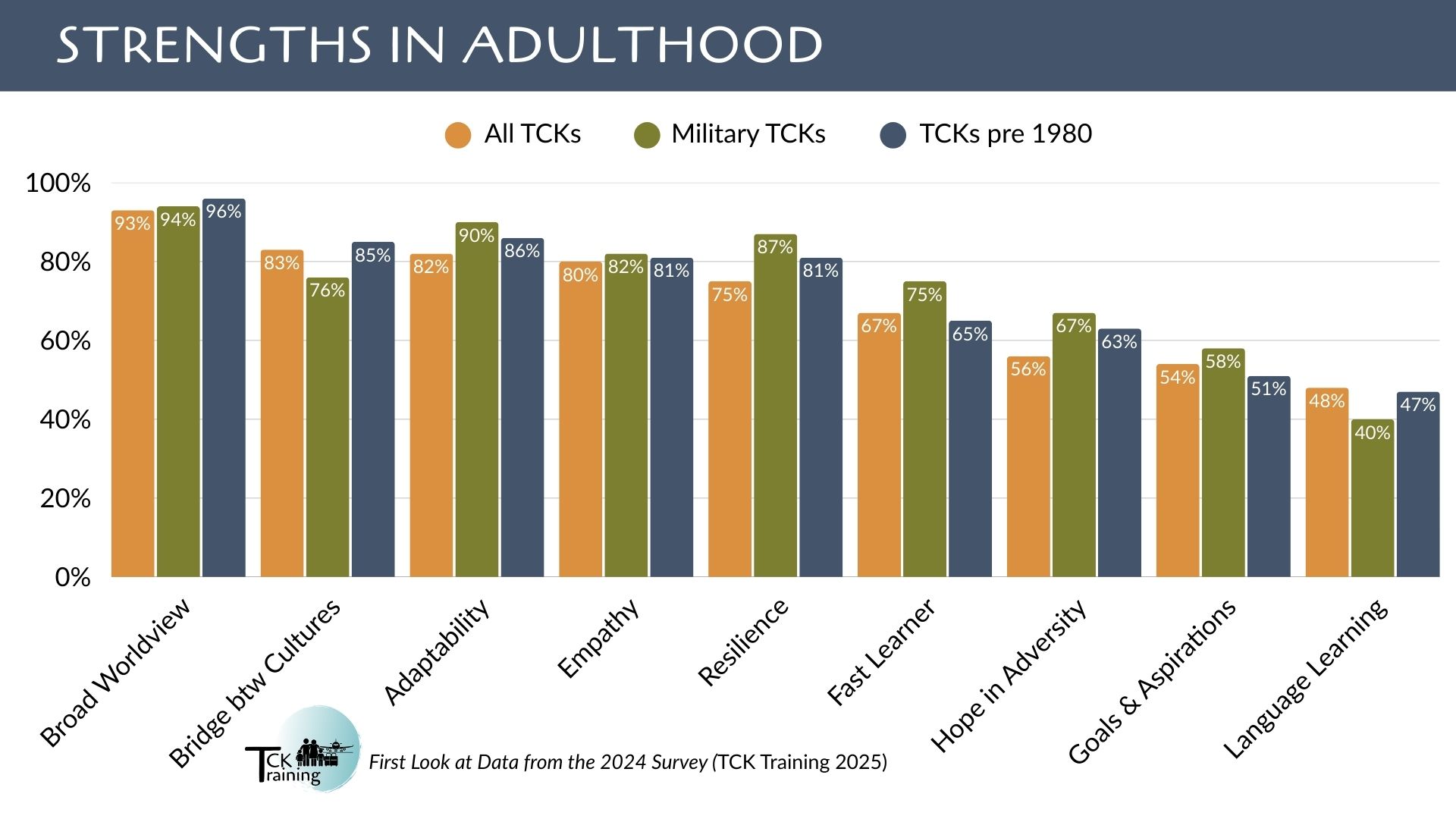
Struggles
- 62% of military TCKs had trouble belonging
- 38% of military TCKs experienced identity uncertainty
- 33% of military TCKs experienced fear of commitment – a higher rate than seen in other TCKs
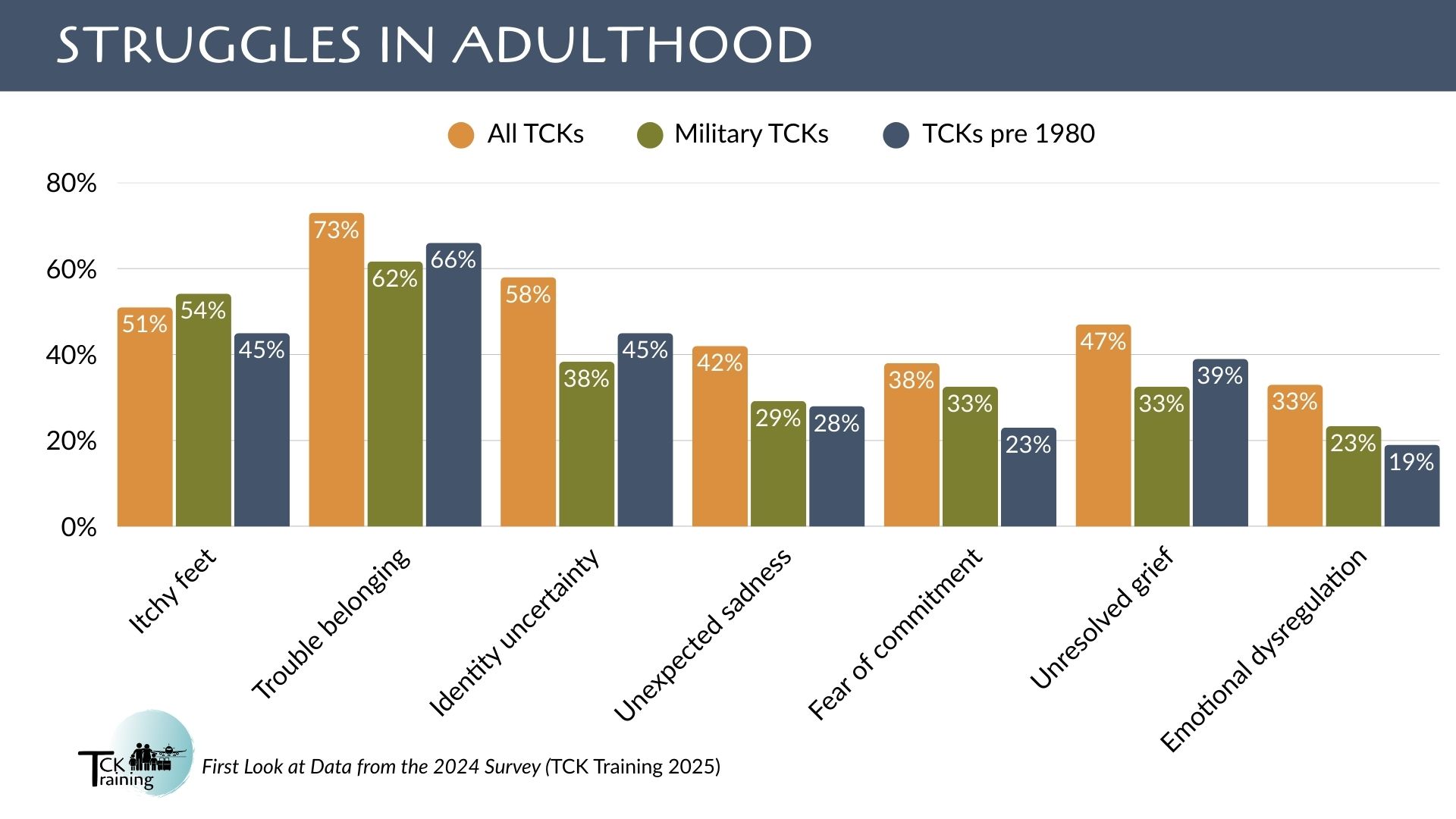
Mental Health
Symptoms of Anxiety, Depression, and PTSD
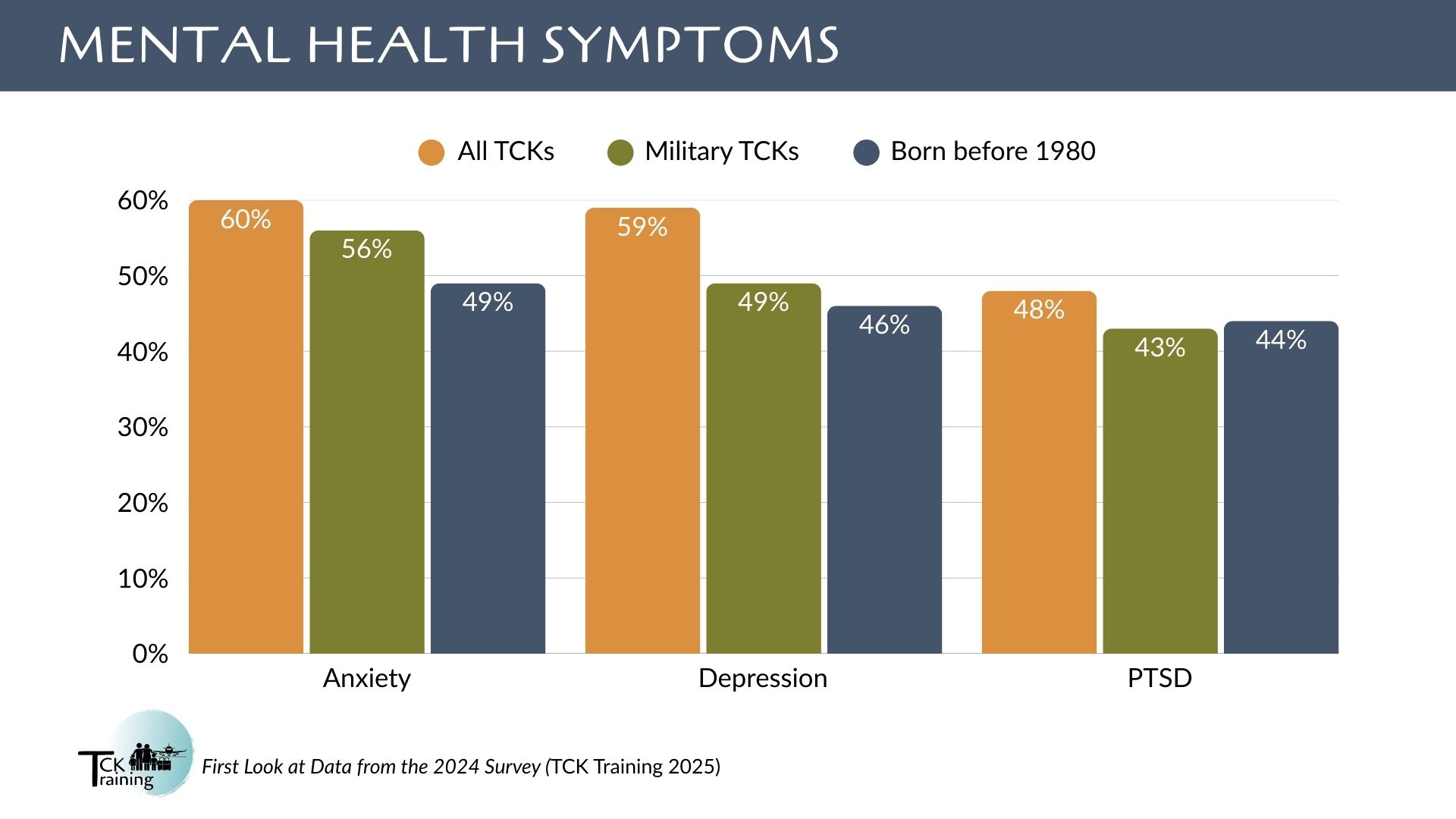
Symptoms of Disordered Eating, Self Harm, and Suicidal Ideation
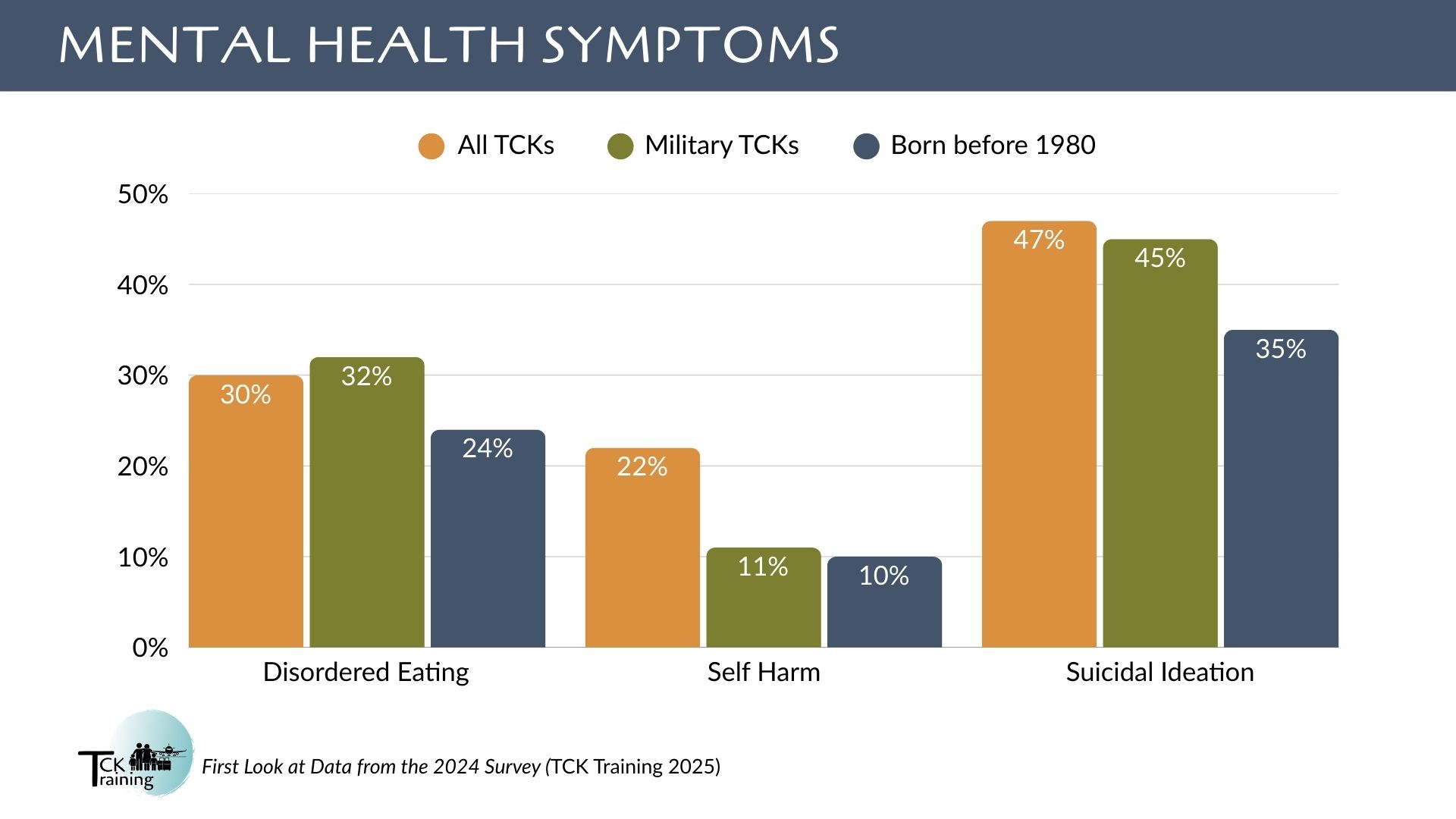
Mental Health Concerns in Military TCKs
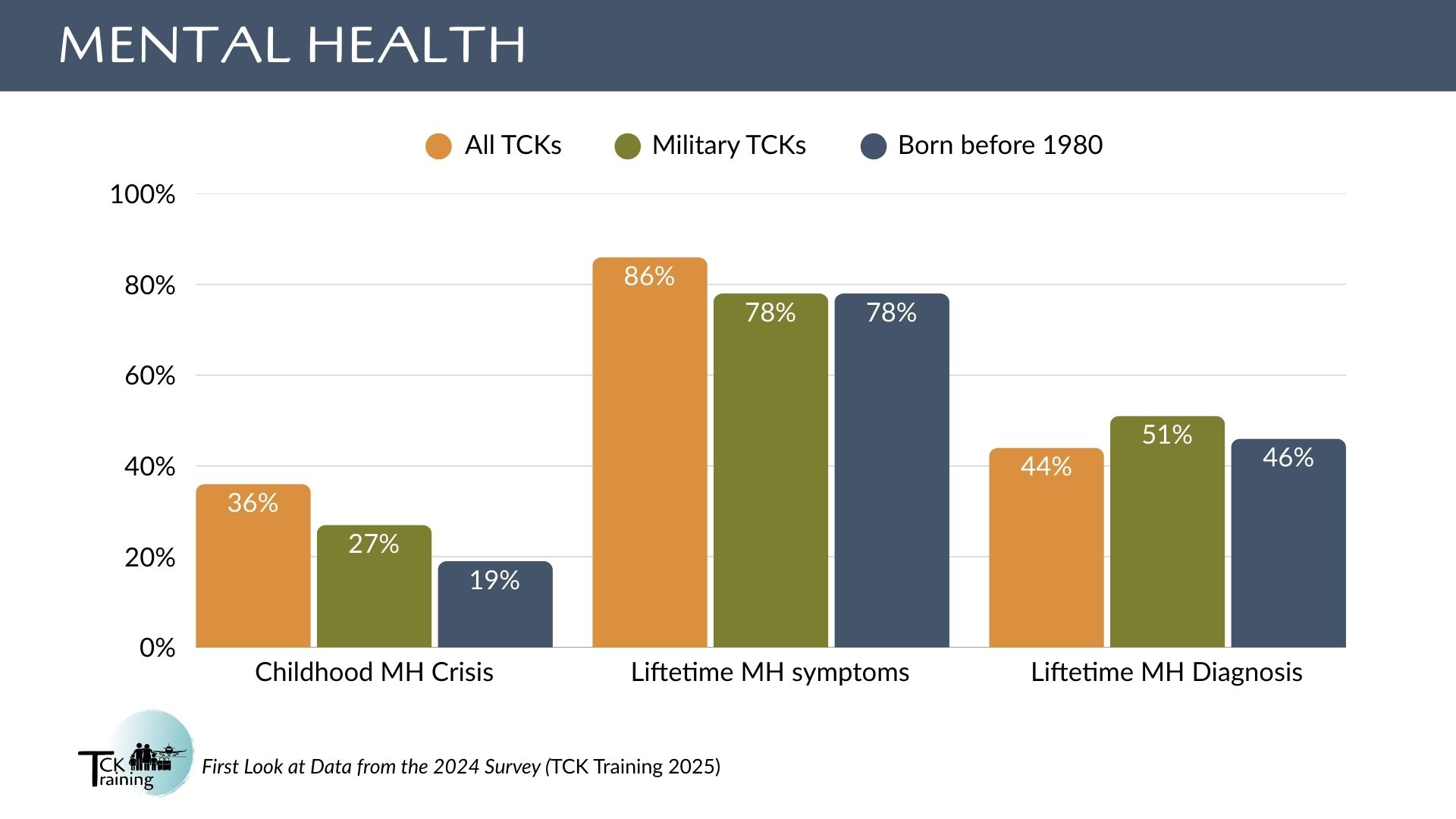
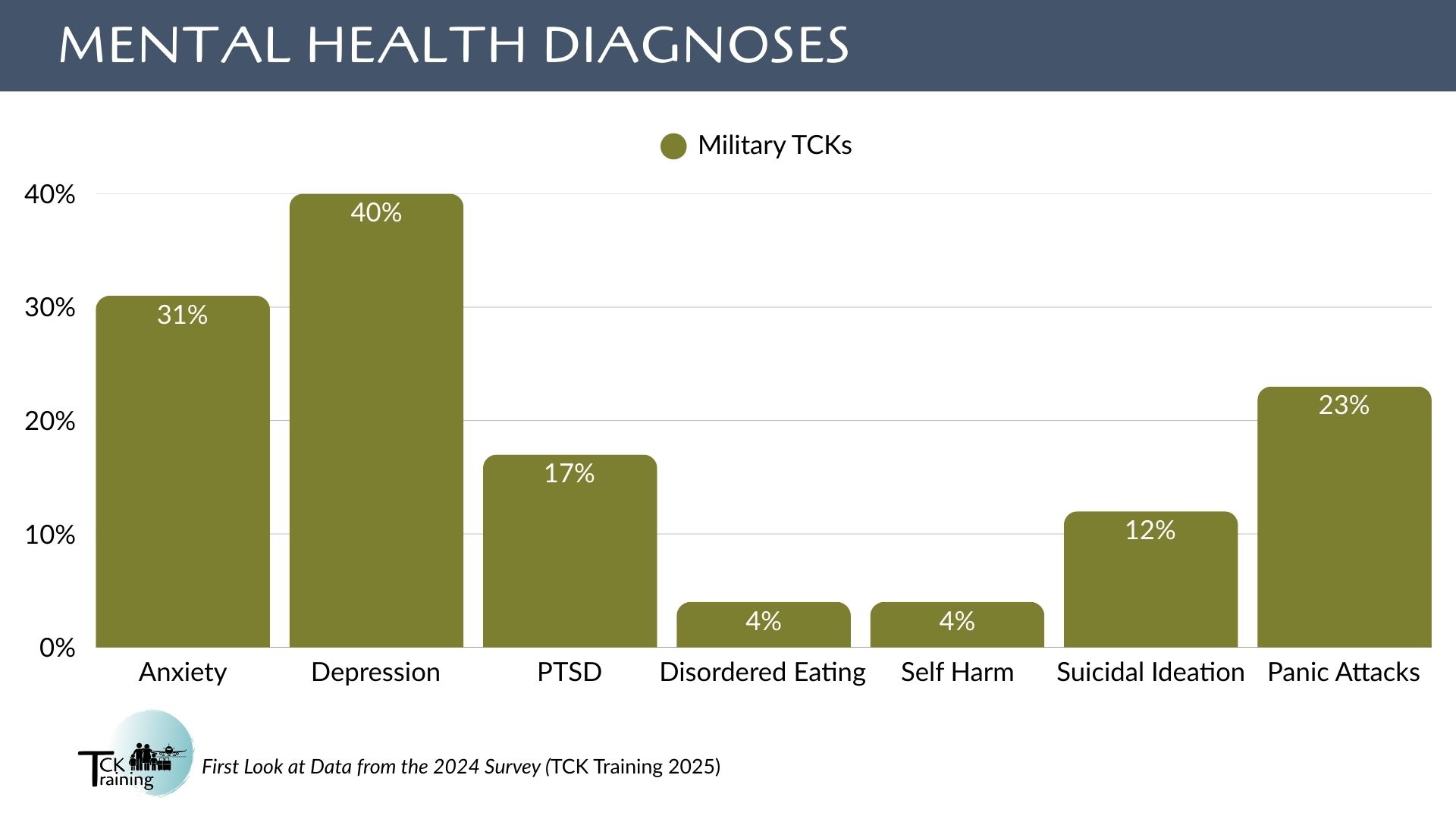
Implementing Effective Support
The first step is simply acknowledging that the stress of moves, especially on an international scale, has a deep impact on families and the relationships between parents and children.
For Caregivers of Military TCKs:
Both internal departments and supporting organizations can improve their understanding of how global mobility affects families, be empowered as trainers and caregivers, and build a library of resources to support the families they work with.
This might include training in Debriefing Certification, for example.
For Parents of Military TCKs
Parents can also build their own library of resources – both a literal library, and accessing online trainings that are designed for those raising children abroad. This workshop on Raising Thriving Military Kids Abroad is a place to great start!
TCK Training also offers a range of free resources to help families get started with tools to support their children through the stresses of international life. For more ideas, check out this amazing list of resources for military families!
For Adult Military Kids
Living abroad as a military kid comes with unique joys and struggles – and that’s okay! Acknowledging the both/and of this life helps us all. As a military TCKs you can receive support directly – no matter how old you are, and how long ago you lived abroad.
There are a range of Unstacking resources to help you process your experiences and how they’ve shaped you. There is the Unstacking book, coaching sessions, and a self-guided course. Learn more about these and other resources here!
Military TCK, born 1983
Related Blog Posts



